First, foreigners. Myself in particular. I have encountered nothing but kindness here in Kamigori. As a fairly weird looking guy (red hair and freckles are not even a recessive trait in Japan), I thought that I would have felt more alienated than I do. Sure, everyone looks at me longer than they do at other people, but not with the xenophobia I was ready for. That's not to say that I held the belief that Japanese people are racist. I just stand out in a crowd, here, so I thought people might be taken aback. But they're not.
The only instances of my feeling different are with kids. My preschool students were shy upon meeting me, but they're kids; they adapt fast. I never really felt awkward with them. When I say "kids" I mean elementary and junior high school age kids. And this is a new revelation for me. Very young kids don't care what people look like. It's the kids that have grown up with so much commonality that find differences strange. For example: I taught my first class at Harima Kogen Higashi Primary School (the elementary school near Kouto) on Friday. As I rolled up my sleeves and the students saw my orange arm hair, they were shocked. One boy even reached out to pet my arm and said "Sugoi!" Which basically means "cool".
My next discovery about Japan is the excessive use of onomatopoeia. Not only am I a huge fan of the word "onomatopoeia", but also of the actual practice. It's an incredible thing to hear whole songs that contain an equal number of sound effects and actual Japanese words. I was asking Hara-sensei about one in particular that I heard at the preschool. Zarazara. This is the sound of running your hand over something with a rough texture. Also, it is the Japanese word for "rough". See where I'm going with this? So I said what I thought to be the opposite of zarazara, which I heard as zuruzuru. Hara-sensei laughed and said "No... It's tsurutsuru. Smooth or slippery." I gave her a slightly confused look and asked what zuruzuru was. She explained that to me, and it was my turn to laugh. With the utmost delight, I might add. "Zuruzuru is rotting skin." Like a zombie? Yes, indeed, like a zombie. I was at once amazed and completely enthused. Sure, the word also works for rotten fruit, but who cares? Zombies!
She went on to explain to me that onomatopoeia are used more in the west of Japan than the east (in the west they speak a dialect called Kansai-ben). This, she told me, is because Osaka is known as a very big theater city in Japan. Many gestures and sound effects are used by people in the west. When she told me about this, it reminded me of the story of silent film actors when "talkies" were introduced in America. None of them could get acting jobs because they used over-elaborate gestures and over-enunciated everything they said.
Now, let me touch on some Japanese words I've learned since arriving. These are all things I am now using with regularity. On the one hand, it is because they are very useful words. On the other, they are all words I really like.
- sugoi
- This means "awesome". I mean that in the literal sense, and not in the way I use it too often. "Awe-inspiring" might be a more appropriate definition. It can also be used for "terrible".
- majide
- "Really?" This is a super useful word that I find myself saying at very convenient times very accidentally.
- yabai
- A word used to show frustration (like your favorite four-letter word in English, but without the social stigma).
- ganbare
- "Fight!" Not like an actual fight. More like "Don't give up!" A superb use of this word would be when someone mentions that they are tired. Or when someone feels like they cannot accomplish something. Also a very useful word that I love a lot.
- naruhodo
- "So it is", or "That's true". This is a newly-acquired word for me, but I like the way it makes my mouth feel when I say it. (On a side note: Uncle Ron, I'm usually good with punctuation, but I left my style manual at home. How's it looking up there? Comma before or after the end quote when it's not an actual quote?)
There are actually quite a number of other things that I have come across here that I should mention, but I'll save them for later. You probably wanna see some photographs, eh? The first is a photo of dinner at Suzusho, the yakitori restaurant that Yamamoto-sensei owns. Now with 100 percent more asparabeikon, or one of the most delicious things I've ever eaten ever.
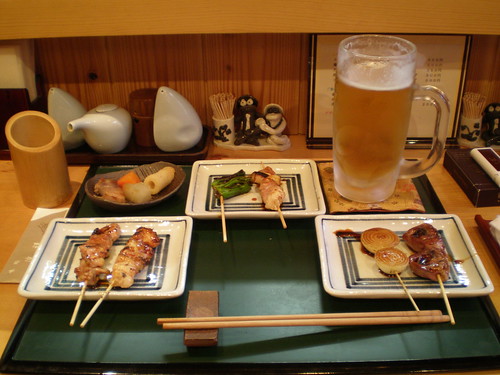
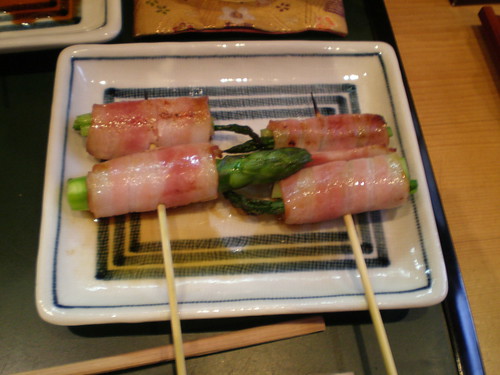
Here are some pictures of Harima Kogen Higashi Primary School. I teach English here on Fridays. This entire complex was designed by the fairly well-known architect Tadao Ando. It's gorgeous.
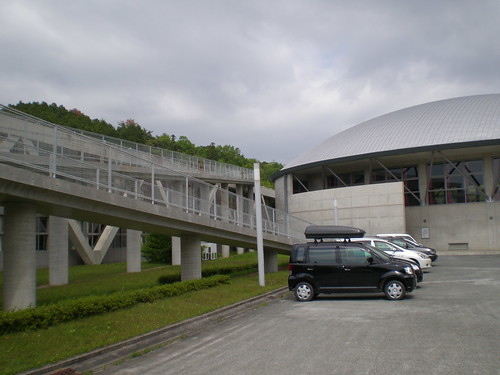
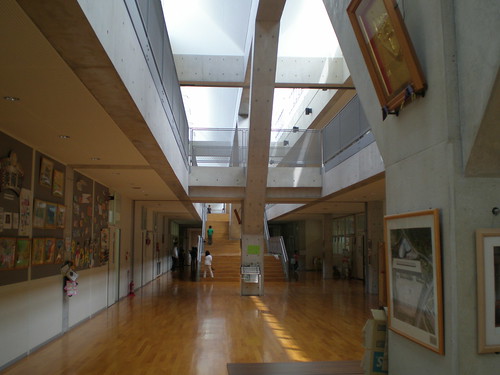
Some shots of things I've won in the arcades in Himeji:
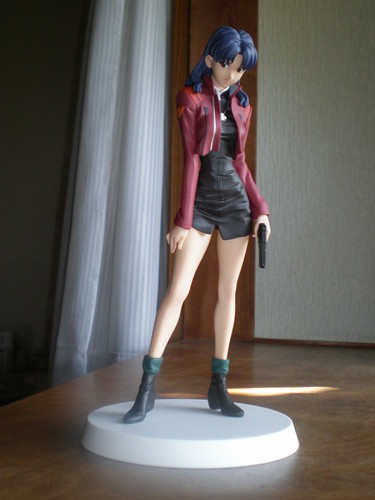
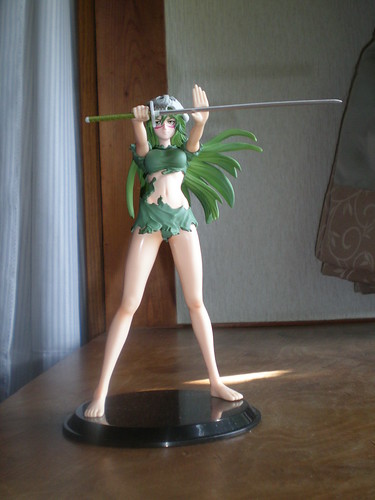
And finally, your drink of the day:

This is just one of many many bottled coffees in Japan. This one is coffee with milk and sugar. I suppose this is for when you don't have enough coffee in your regular coffee. I have to say, however, that after tasting this coffee it's one of my least favorites. I like Kirin's offering better, and it's cheaper. So I guess I win.

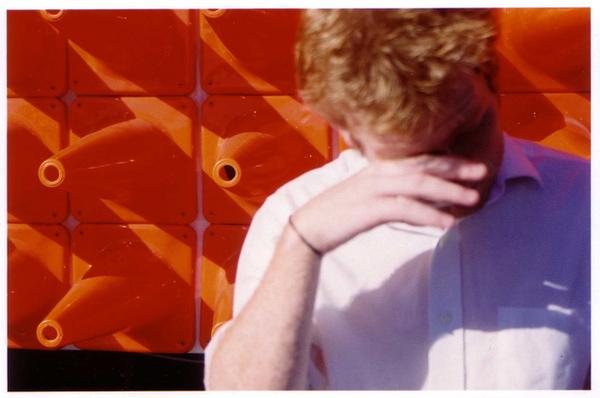
1 comments:
Hey Johnny,
No comma needed in the case of "So it is", or "That's true". as cut and pasted from above (the "or" connects the clauses, which are of equal weight. Period would go within the quote. Stay well, Love Uncle Ron
Post a Comment